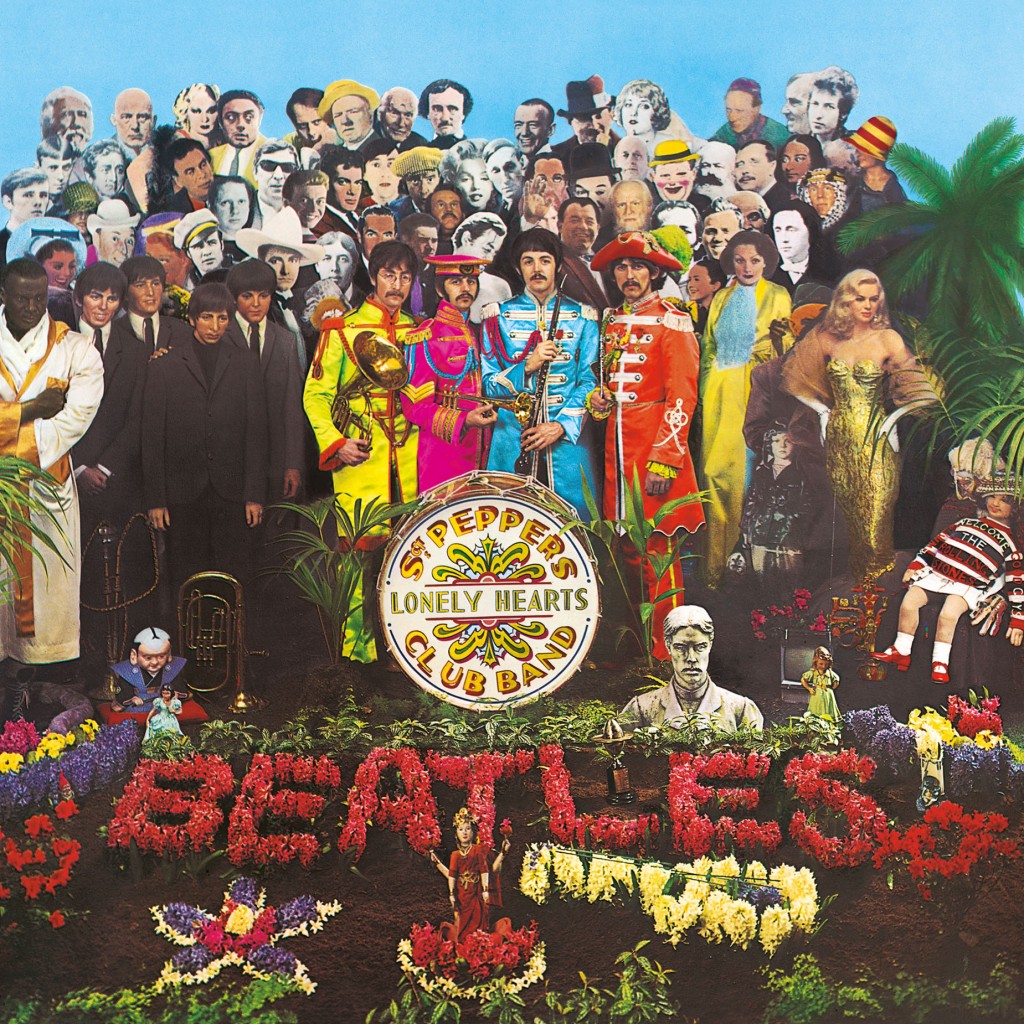Culture
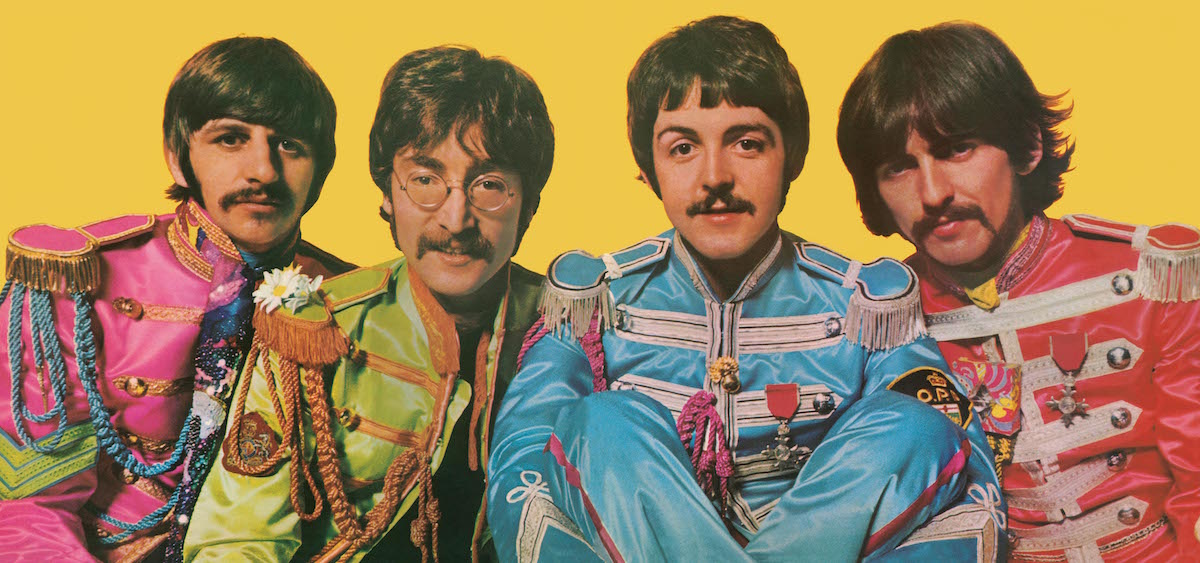
It Was 50 Years Ago June 2 That Sgt. Pepper Taught the Band To Play
By: Emily Votaw
Posted on:
Bill Rawlins first heard Sgt. Pepper’s Lonely Hearts Club Band on an summer day in 1967.
“When my friends and I first put on Sgt. Pepper’s, we thought it was a big piece of junk. We laughed and laughed about it,” said Rawlins, a member of regional act The Wild Honeybees and faculty at Ohio University’s Scripps School of Communication, on a muggy day in early May 2017 in the upper recesses of Donkey Coffee, only weeks away from the 50-year anniversary of the monumental album’s U.S. release date.
“But sure enough, we all went home and listened to the album a few more times and by that evening we were all on the phone, telling each other we hadn’t meant what we said about it earlier – trying to backpedal,” said Rawlins.
Sgt. Pepper’s Lonely Hearts Club Band is The Beatles’ eighth studio album – released only three years after the band broke onto the American music scene with their stunning performance on the Ed Sullivan Show. The album is a breathing, throbbing mish-mash of the avant-garde and the achingly popular. Hints of vaudeville peek through (“Being for the Benefit of Mr. Kite,”) right alongside traditional-sounding string arrangements (“She’s Leaving Home,”), and infectious pop earwigs (“When I’m 64,”). The album concludes with the potentially mind-altering “A Day in the Life,” a powerful example of John Lennon and Paul McCartney’s collective artistic abilities.
Saturday, June 3 at 8 p.m. WOUB-HD will broadcast Sgt. Pepper’s Musical Revolution, an in-depth examination of one of the greatest (and some would argue, the greatest,) pop album of all time. Hosted by composer and British television presenter Howard Goodall, the special features rare images and information concerning the album. Following the broadcast of Sgt. Pepper’s Musical Revolution is Ed Sullivan’s Rock and Roll Classics at 9:30 p.m. – featuring the Beatles’ iconic performance on the show, as well as sets by the Rolling Stones, Petula Clark, the Beach Boys, Herman’s Hermits, and others.
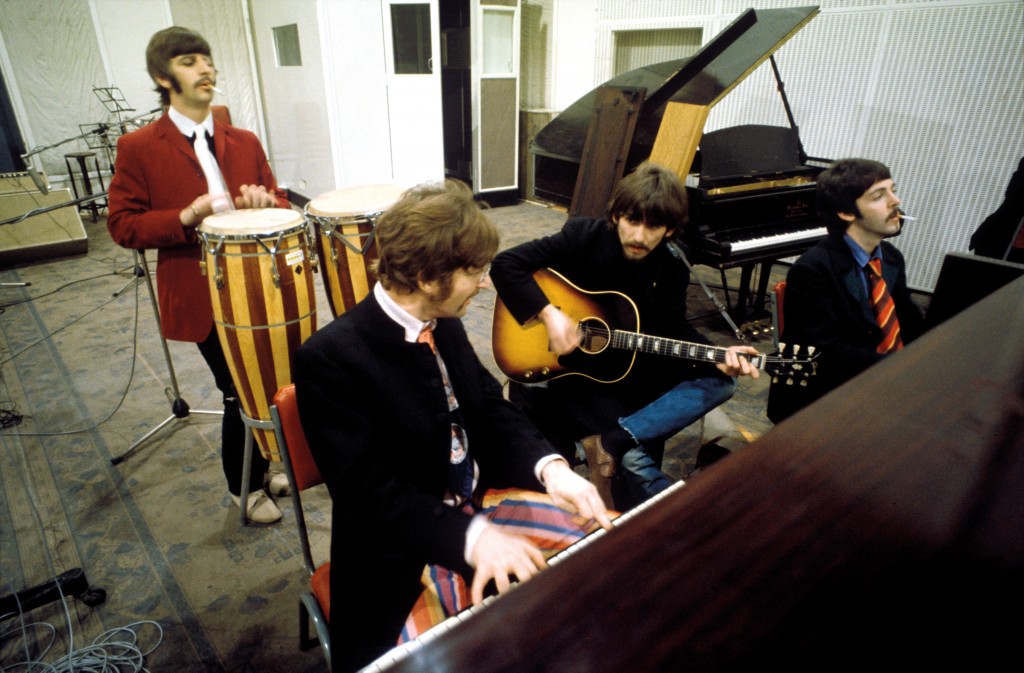
“Taking home a new Beatles record and listening to it with your friends was more than just a ritual,” Rawlins said. “It indicated a major shift in our lives. We measured the passage of time by the release of Beatles albums.”
For Chris Pyle, owner of Donkey Coffee (and fellow member of The Wild Honeybees,) Sgt. Pepper’s came into his life when he was in his early teens, several decades after its initial release.
“I remember buying Sgt. Pepper’s from a drugstore when I was 12 or 13 – it was maybe the sixth or seventh Beatles album I had bought, and it was the one that people would always talk about,” said Pyle. “I just loved it so much – I thought it was incredible. I listened to it for about a year straight.”
It’s worth noting that Sgt. Pepper’s is a landmark work released in the midst of a year that was ridiculously chockfull of records that indicated a seismic change in pop music. The Velvet Underground’s The Velvet Underground & Nico spawned a million bands; while The Jimi Hendrix Experience released not one but two albums (Axis: Bold as Love, and Are You Experienced?); and The Doors released their self-titled debut. The list of spectacular albums from 1967 goes on, depending where your personal cultural reverence lies.
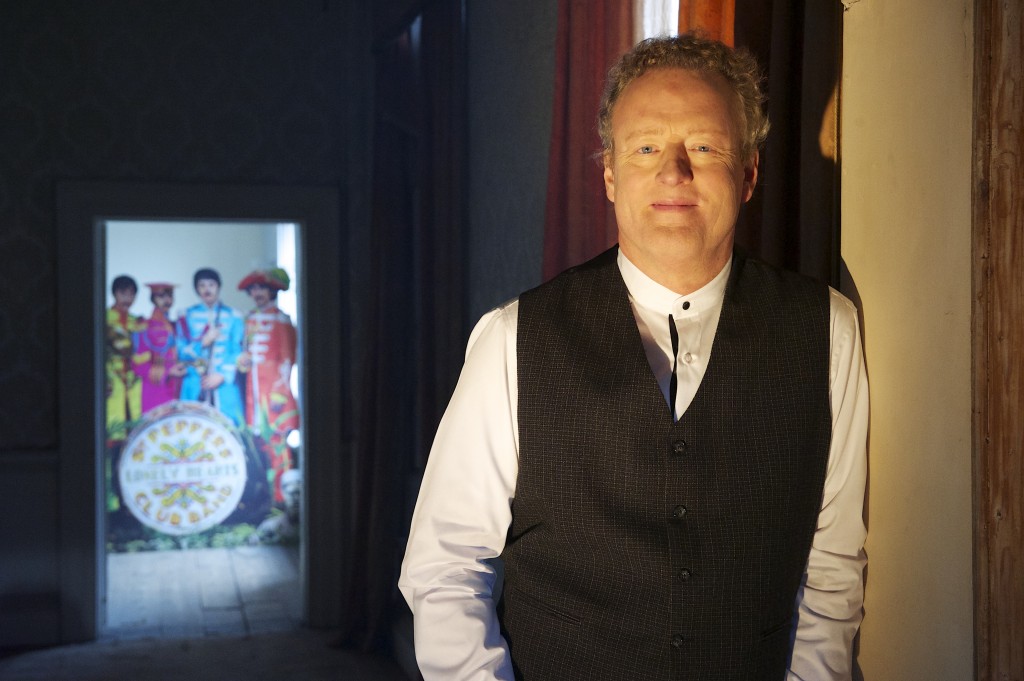
“If you listen to what rock ‘n’ roll sounded like up until when Sgt. Pepper’s was released, it was basically blues-influenced. Chuck Berry, Buddy Holly. The Beatles didn’t invent everything, but they did make a lot of things popular,” said Pyle.
“There is a lot to celebrate about Sgt. Pepper’s. But one of the major aspects that elevates it over other records is Ringo’s drumming. Ringo Starr is the architect of contemporary pop drumming – and if you listen to that album, it’s his business card,” said Rawlins. “That fill at the end of the first verse of “A Little Help from My Friends” – it’s miraculous. Listen to the drumming on “Lovely Rita,” – “A Day in the Life,” nothing like that had ever been done before. He changed the way drummers play.”
Sgt. Pepper’s was the first rock album to win a Grammy – four of them, to be exact – in 1968.
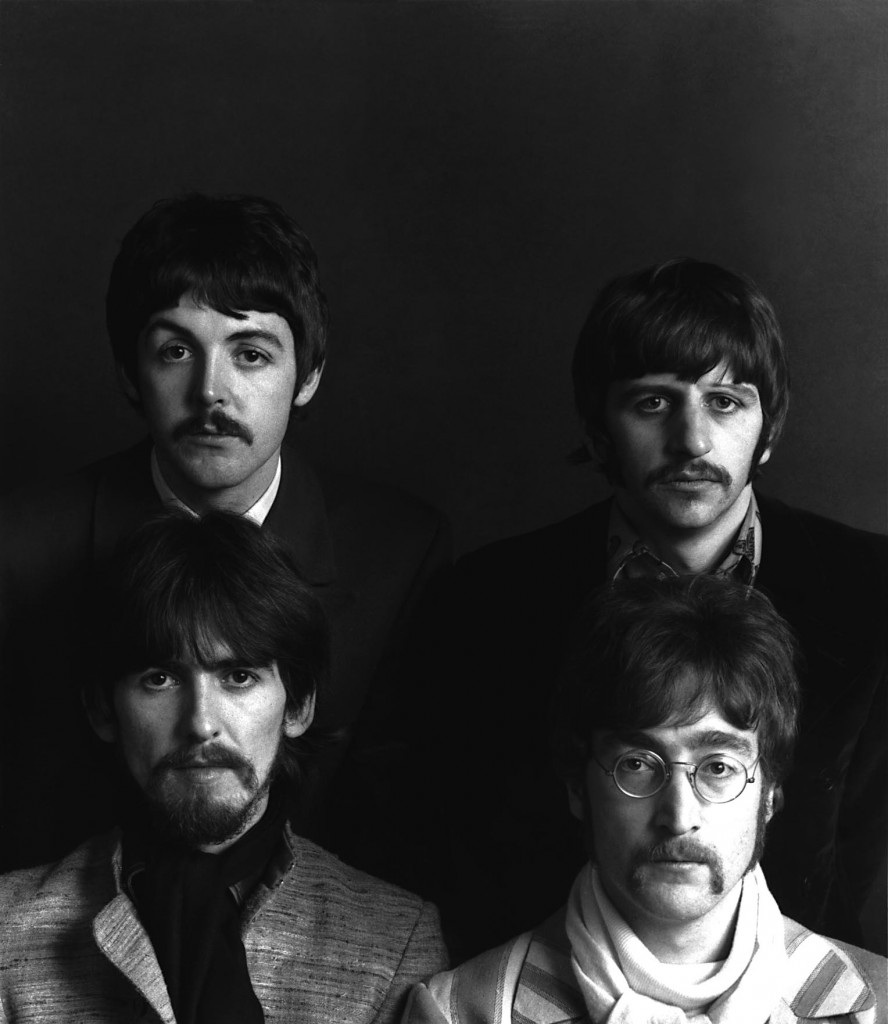
“I would say there isn’t another band that managed to put out as many number one hits as the Beatles did and still get the ear of the underground,” said Pyle. “The Beatles were not only critically acclaimed, they also continually pushed the boundaries of pop music. When you listen to a song like “Strawberry Fields,” it’s just incredibly weird, even now. But it was a huge hit.”
“Strawberry Fields,” which is on Magical Mystery Tour, was one of the singles used to promote Sgt. Pepper’s; initially intended for the album, although in the end it wasn’t included – as was usually the case with singles and albums throughout the early days of popularized rock ‘n’ roll.
Generational differences are apparent when Pyle and Rawlins speak about Magical Mystery Tour, which was released in November of 1967.
“I think it’s a better album,” said Pyle.
“No way. “Blue Jay Way” is a dirge! Just an absolute dirge!” said Rawlins.
This disagreement stems largely from the fact that Magical Mystery Tour was released with only six new tracks on it; the second half of the album made up of songs that had been previously released.
“I would say that The Beatles’ psychedelic phase includes Revolver, Sgt. Pepper’s, and then Magical Mystery Tour – and people will say that Magical Mystery Tour is just a bunch of handpicked songs brought together, but the thing is, it was released much in the same manner that albums are released today,” said Pyle. “You’ll get six Lorde singles before you get an album.”
“Great songs do not great works make!” Rawlins said. “We are coming to this album from a different place – by the time that Magical Mystery Tour came out, I had already had entire days centered around listening to the single with “Baby, You’re a Rich Man” on it. Bless your soul. You’re a lot younger than me and I hope that you enjoy your life. But the fact of the matter is that “Magical Mystery Tour” is a poorly recorded song –“
“Great song,” laughed Pyle.
“It’s poorly recorded, it’s hyper-compressed,” said Rawlins.
“Sounds great,” Pyle commented.
“You need to understand where I am coming with this. It was a very special thing to be waiting for a new Beatles album – and I would drive 21 miles into a city that would actually have it on a Wednesday,” said Rawlins. “Back then you didn’t know everything about an album before you bought it. You knew next to nothing about it, and that was kind of cool. But I love this conversation. It’s fun to disagree about the Beatles because we all love the Beatles so much. And this is why they are still important – they are still a breeding ground for dialogue, for excitement.”
